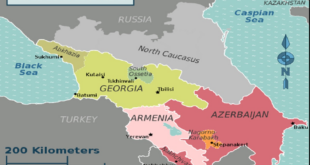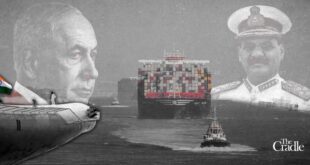China is walking a tightrope between economic growth and inflation as industries cope with climate change promises and commodity costs climb.
April readings of factory gate prices may have served as a warning of higher costs to come. The producer price index (PPI) jumped 6.8 percent from a year earlier in its strongest surge since 2017.
The consumer price index (CPI) rose at a slower 0.9- percent rate, weighed down by weaker pork prices, although the pace was still the fastest in seven months.
The CPI sent mixed signals of a still-restrained recovery of consumption from the COVID-19 crisis a year before. The lag behind PPI growth suggested that manufacturers’ profits will shrink if material costs continue to rise.
Higher costs for commodities have gotten most of the blame with steep price growth over the past year for inputs of crude oil, iron ore, copper and coal.
But China’s economy and the stimulus policies that drive it have been the cause behind the costs as record production of manufactured goods like crude steel increased at nearly twice the rate of GDP last year.
Stellar economic growth forecasts for this year have added to price expectations. In April, the International Monetary Fund raised its projection for 2021 to 8.4 percent, up 0.3 percentage points from its January forecast.
Growth of gross domestic product in the first quarter hit 18.3 percent, rebounding from the record 6.8-percent plunge in the year-earlier period. Industrial output in April rose 9.8 percent, the National Bureau of Statistics (NBS) said.
Demand for raw materials
The outlook suggests that China’s manufacturers will keep up the demand for more raw materials regardless of the effect on prices.
“China is dependent on commodities imports,” said Derek Scissors, an Asia economist and resident scholar at the American Enterprise Institute in Washington.
“Because of global supply uncertainty, there’s going to be upward pressure on commodities prices for the rest of this year at least,” said Scissors. “(It’s) inflation of a sort,” he said.
On May 18, the official English-language China Daily cited analysts’ concerns that “rising commodity prices are beginning to erode growth and require targeted policy support.”
NBS spokesman Fu Linghui noted that retail sales growth in April “softened,” dropping sharply to 17.7 percent from 34.2 percent in March. In real terms, the average annual growth rate over the two-year period going back to pre-pandemic conditions was only 2.6 percent, the NBS said.
Climate change is likely to be another factor behind price increases.
Although advocates including U.N. Secretary-General Antonio Gutteres have argued that renewable energy sources are already cheaper than coal for power production, some of China’s measures to cut industrial carbon emissions appear to be driving prices up.
In the steel industry, China has imposed tariff changes aimed at pressuring producers to reduce both capacity and output to curb emissions at a time when the government keeps pushing for more consumption to boost growth.
The measures have reportedly triggered stockpiling in advance of the changes, creating an iron ore price spike, while the clash of objectives threatens to limit steel supplies, sparking rumors of shortages.
Futures prices for iron ore have soared 34 percent this year while costs for hot rolled steel coils have climbed 38 percent, Reuters reported on May 14.
Concern over export prices
The seeming contradictions in China’s policies have escalated into international concern over export price hikes.
The inflation risk is the latest example of the worldwide consequences of China’s growing dominance over manufacturing.
“Investors are increasingly worried that pandemic-driven stimulus measures could super-charge global inflation and force central banks to tighten policy, potentially curbing the recovery,” Reuters said.
In a quarterly report, the People’s Bank of China (PBOC) acknowledged the inflation threat but cited overriding concerns.
“Residents’ consumption is still constrained and investment growth is insufficient,” the central bank said, according to a CNBC translation.
The quote suggests that the PBOC is more concerned about signs of weakness in the economic recovery than the risk that consumer prices will exceed its 3-percent target boundary for this year.
So far, the PBOC has shown no sign of tightening its policies and is seen as unlikely to do so as long as consumption growth lags and small-to-medium sized businesses encounter inadequate access to loans. But the stance may run the danger of sweeping inflationary pressures under the rug.
“The central bank will maintain a prudent monetary policy that is flexible, precise, reasonable and moderate, and give priority to supporting the real economy,” it said on May 11, adding that “it will walk a fine line between economic recovery and risk control,” the official Xinhua news agency reported.
‘Price crisis unlikely’
Until recently, the government has downplayed inflation worries, also calling a price crisis “unlikely.”
“With time-limited fiscal and monetary policies phasing out gradually and no flood-like policy stimulus, China does not have the base for (a) sharp rise in prices,” China Daily quoted the NBS spokesman as saying.
Yet, the government has resorted to some extraordinary measures to contain price hikes for coal that could cut into profits and drag on consumption.
According to Reuters, thermal coal prices soared 20 percent during the month to May 10, prompting at least three Chinese coal indexes to suspend daily quotes in hopes that the blackout would cool prices down.
On May 17, Xinhua reported that the China Taiyuan Coal Transaction Center in Shanxi province said that its index rose over 6 percent from the previous week, capping price hikes in five consecutive weekly periods.
On Monday this week, the index advanced again at only a slightly slower pace of 4.67 percent.
Job loss gradual
But Derek Scissors argued that inflation from commodities will not affect all aspects of the economy equally.
“Commodities inflation harms the most inefficient, most oversized sectors of the economy. They should shrink,” said Scissors. “Job loss will occur gradually as inflation eats into viability,” he said.
“The work force is shrinking and ageing, and should shift away from heavy industry, This is a local political problem, not a national economic problem,” he said.
But at an executive meeting of the cabinet-level State Council on May 19, Premier Li Keqiang voiced the government’s growing concern over the effects of rising commodity costs.
“The government must take very seriously the adverse impact caused by the price hike,” Xinhua quoted Li as saying.
“We must carefully analyze the reasons behind this round of rapid increase in commodity prices and focus on the crux of the issue,” Li said, suggesting that the government was still at an early stage of untangling its conflicting policies.
The meeting concluded with a warning that the spiral might lead to speculation, shortages and the threat of intervention.
While the market continues to play a decisive role in resources allocation to ensure the supply of commodities and keep their prices stable, the government must better fulfill its responsibility.
“Any monopoly and hoarding will be cracked down upon under the law to step up market regulation,” Li said.
 Eurasia Press & News
Eurasia Press & News



